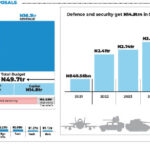One year after the eviction of Sarkin Fulani of Oyo State, Alhaji Saliu Abdulkadir, from his settlement in Igangan in Ibarapa North Local Government Area of Oyo State, there are quite a number of indigenes of Igangan who are still pained by the eviction of the herders.
One of them is a resident, who simply identified himself as Mr Olayinka for fear of being tagged as being pro-Fulani.
- Igangan Eviction: Igboho Must Be Regretting His Actions by now – Sarkin Fulani
- BREAKING: Angry youth hit the streets as ‘soldier’ kills truck driver in Yobe
According to him, the Igangan town must be regretting for inviting Sunday Igboho.
He stated that the farmers-herders clash is not new in Ibarapa axis and that dialogue instead of eviction should have resolved the issue.
He said since the incident of January 2021, the community has witnessed a decline in socioeconomic activities.
For instance, he stated that the weekly market on Tuesdays which used to host hundreds of the Fulani has been witnessing low turnout since last year.
He said, “What happened could have been resolved with dialogue. It shouldn’t have degenerated to that level. Yes, the farmers herders’ clash was prominent in Igangan which destroyed the age-long relationship among the indigenes of Igangan and Fulani residents. But we have been managing it over the years until the issue of kidnapping for ransom became rampant and many people blamed the Fulani for the increasing spate of attacks.
“The truth of the matter is that I have known Sarkin Fulani from my childhood. He was brought to Igangan at a very young age by his late dad who was buried in that settlement. He grew up in that settlement, he had his children there. To be fair to him, he tried his best to stop the attacks. He continued to let people realize that the attacks were not being carried out only by the Fulani.
“In fact, he once arrested some people for kidnapping a Fulani herder and they called him demanding for N1m but he was able to round them up through a sting operation and that was how they were arrested, they are still in prison as I am talking to you. They were discovered not to be Fulani but Yoruba.”
It was also learnt from another resident that the eviction of the Fulani is responsible for the declining socioeconomic activities in the town.
One indigene recalled that women in the town used to make a thrift contribution of N5, 000 on every market day but this is no longer the case. “They were doing it conveniently but this is no more. Who is even making N5, 000 on a market day? Again, we used to slaughter between 10 to 15 cows on every market day and a cow was sold for less than N70, 000 but now a cow costs about N200,000. We used to buy it from Gaa Musa, a settlement around Iseyin. The cost of transportation alone is high,” he said.
The indigene however advised the government to explore a reconstruction and reconciliation option to bring back the people who have lived together for more than a millennium.

 Join Daily Trust WhatsApp Community For Quick Access To News and Happenings Around You.
Join Daily Trust WhatsApp Community For Quick Access To News and Happenings Around You.


